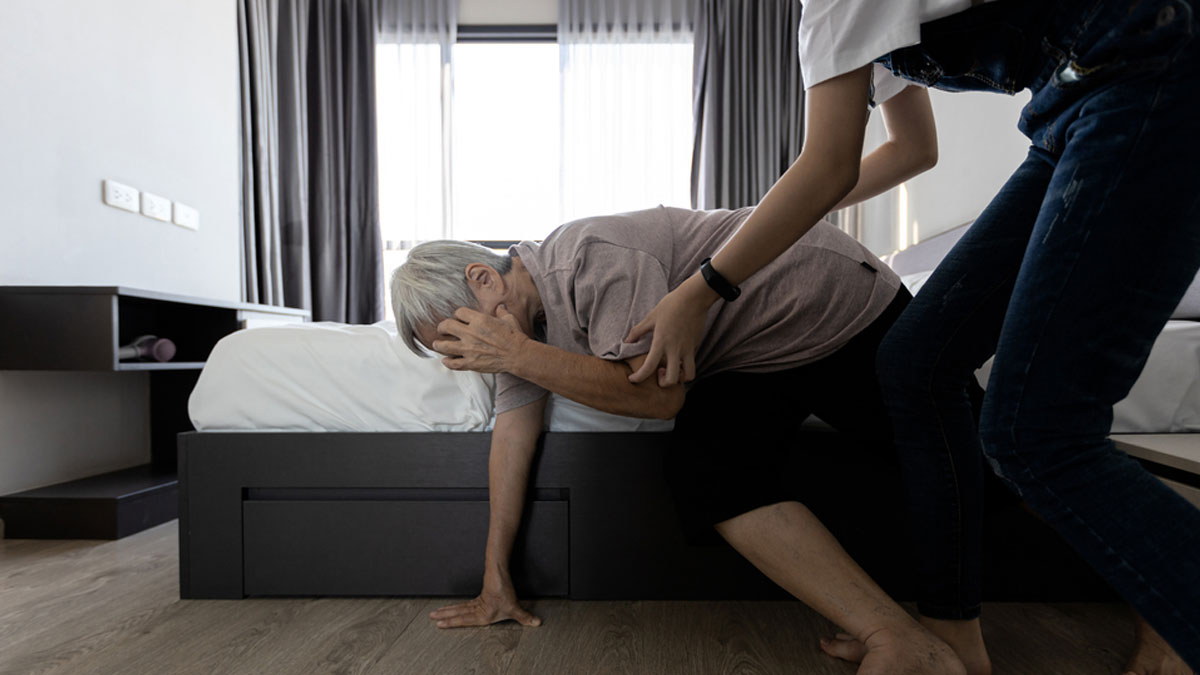
Do you often feel lightheaded and lose consciousness while carrying out your daily tasks? This unsettling experience, known as syncope or fainting, is a sudden, temporary loss of consciousness caused by a decrease in blood flow to the brain. While it can be alarming, syncope is often not indicative of a severe health issue. In this article, we list practical lifestyle tips and preventive measures to help you manage and reduce the occurrence of syncope.
Table of Content:-
What Is Syncope?

According to a study conducted in 2017, syncope is defined as a sudden and temporary loss of consciousness caused by reduced blood flow to the brain. It accounts for 1-1.5% of emergency department visits, leading to high hospital admission rates and substantial medical expenses. Syncope can be categorised into three types: neurally mediated, cardiac, and orthostatic hypotension.
Syncope can result from various underlying conditions, including dehydration, low blood sugar, heart problems, or standing up too quickly. The key to managing syncope is identifying and addressing these underlying causes.
Also Read: What It Means To Feel Dizzy And Faint While Passing Stool
Lifestyle Tips for Managing Syncope
Stay Hydrated

Did you know that one of the most prevalent causes of syncope is dehydration? Hence, ensure you drink plenty of fluids throughout the day, especially in hot weather or during physical activity. Also, avoid excessive consumption of caffeine and alcohol, as these can contribute to dehydration.
Maintain a Balanced Diet
Eating regular, balanced meals helps maintain stable blood sugar levels, preventing fainting spells related to low blood sugar. Don't forget to add a variety of fruits, vegetables, whole grains, and lean proteins into your diet. Snacking on nuts, yoghurt, or fruits between meals can also help maintain energy levels.
Exercise Regularly

Engaging in regular physical activity improves overall cardiovascular health, reducing the likelihood of syncope. Choose moderate exercises like walking, swimming, or cycling. Avoid sudden, strenuous activities, and always warm up before exercising.
Monitor Posture Change
Not only this, even rapid changes in posture, such as standing up quickly, can lead to syncope. Therefore, when moving from a lying or sitting position to standing, do so gradually. As a result, your body will be able to adjust, preventing a sudden drop in blood pressure.
Also Read: These Ways Can Help You Avoid Fainting As Temperatures Rise
Wear Compression Stockings
Compression stockings aid in enhancing blood circulation and preventing blood from accumulating in your legs, potentially triggering syncope. These stockings are particularly beneficial for individuals with orthostatic hypotension or blood pressure regulation issues.
Avoid Triggers
Identify and avoid specific triggers that lead to fainting episodes. Common triggers include prolonged standing, exposure to heat, and stressful situations. In case of fainting, sit or lie down immediately and elevate your legs to improve blood flow to your brain.
Manage Stress
Stress and anxiety can exacerbate syncope. You should practice stress-relief techniques, such as deep breathing, meditation, yoga, or mindfulness. Regular relaxation exercises can help you manage stress levels and prevent syncope.
Preventive Measures for Syncope
Regular Medical Check-ups

Regular visits to your healthcare provider are vital for monitoring your condition and adjusting your treatment plan. Your doctor can identify underlying issues causing your syncope and recommend effective interventions, ensuring you receive timely and appropriate care.
Medications
Sometimes, doctors may recommend medications to help manage syncope. These medications might include those that help regulate blood pressure, enhance heart function, or treat specific conditions, such as arrhythmias. It's crucial to follow your prescribed medication regimen diligently and seek guidance from your healthcare provider before adjusting any medications.
First Aid Training
Make sure you learn basic first-aid techniques, including how to respond to a syncope episode. Knowing how to position yourself or someone else safely during a fainting spell can prevent injuries and facilitate recovery.
Use Assistive Devices
For people at high risk of syncope, assistive devices like canes or walkers can provide stability and prevent falls. Consider using these devices, especially in environments where fainting is more likely.
[Disclaimer: This article contains information for informational purposes only, hence, we advise you to consult your own professional if you are dealing with any health issues to avoid complications.]
Also watch this video
How we keep this article up to date:
We work with experts and keep a close eye on the latest in health and wellness. Whenever there is a new research or helpful information, we update our articles with accurate and useful advice.
Current Version